Brazil is failing to protect its Indigenous people from gold miners
Lula’s government is losing grip of an illegal trade that is threatening to wipe out the Yanomami people, writes Ueslei Marcelino
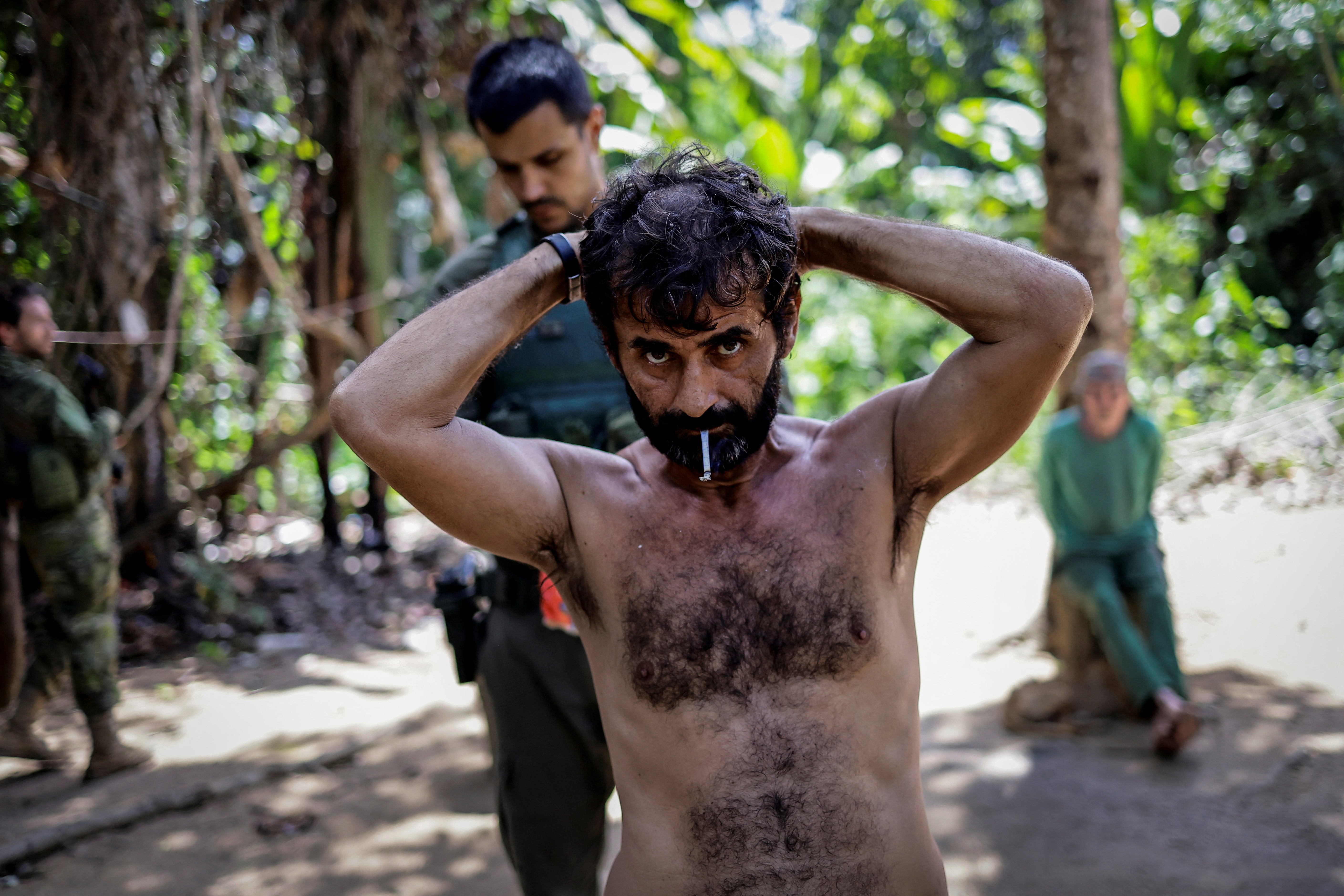
Your support helps us to tell the story
This election is still a dead heat, according to most polls. In a fight with such wafer-thin margins, we need reporters on the ground talking to the people Trump and Harris are courting. Your support allows us to keep sending journalists to the story.
The Independent is trusted by 27 million Americans from across the entire political spectrum every month. Unlike many other quality news outlets, we choose not to lock you out of our reporting and analysis with paywalls. But quality journalism must still be paid for.
Help us keep bring these critical stories to light. Your support makes all the difference.
Brazil is losing the upper hand in its battle to save the Yanomami Indigenous people, who are dying from flu, malaria and malnutrition brought into their vast, isolated Amazon rainforest reservation by resurgent illegal miners.
A year after President Luiz Inacio Lula da Silva declared a humanitarian crisis among the Yanomami and vowed zero tolerance for illegal mining, environmental enforcers warn that Brazil is jeopardising last year’s hard-won progress, when about 80 per cent of roughly 20,000 wildcatters were ousted from the Portugal-sized reservation.
As the Brazilian military has rolled back its support for the government crackdown, the gold-seeking miners have come back, they say, making new incursions into Yanomami land.
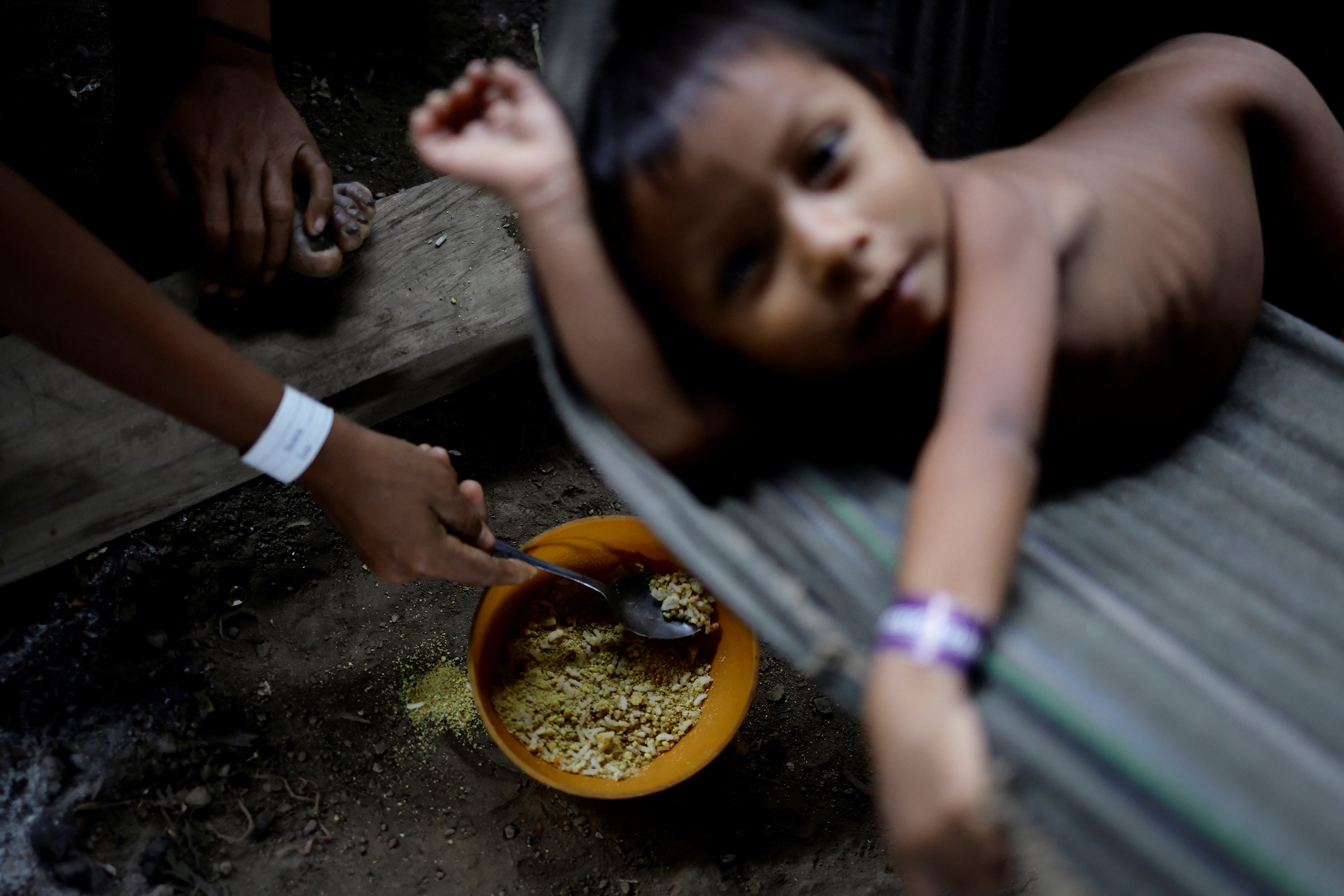
According to Brazil’s health ministry, 308 Yanomami died of disease, malnutrition and violence last year, with 50 per cent of the deaths being children under four. Deaths from malaria, which is introduced by the miners, doubled in 2023 from 2022.
The presence of armed miners has also scared the Yanomami from planting cassava, their staple along with river fish, and reduced the game they can hunt.
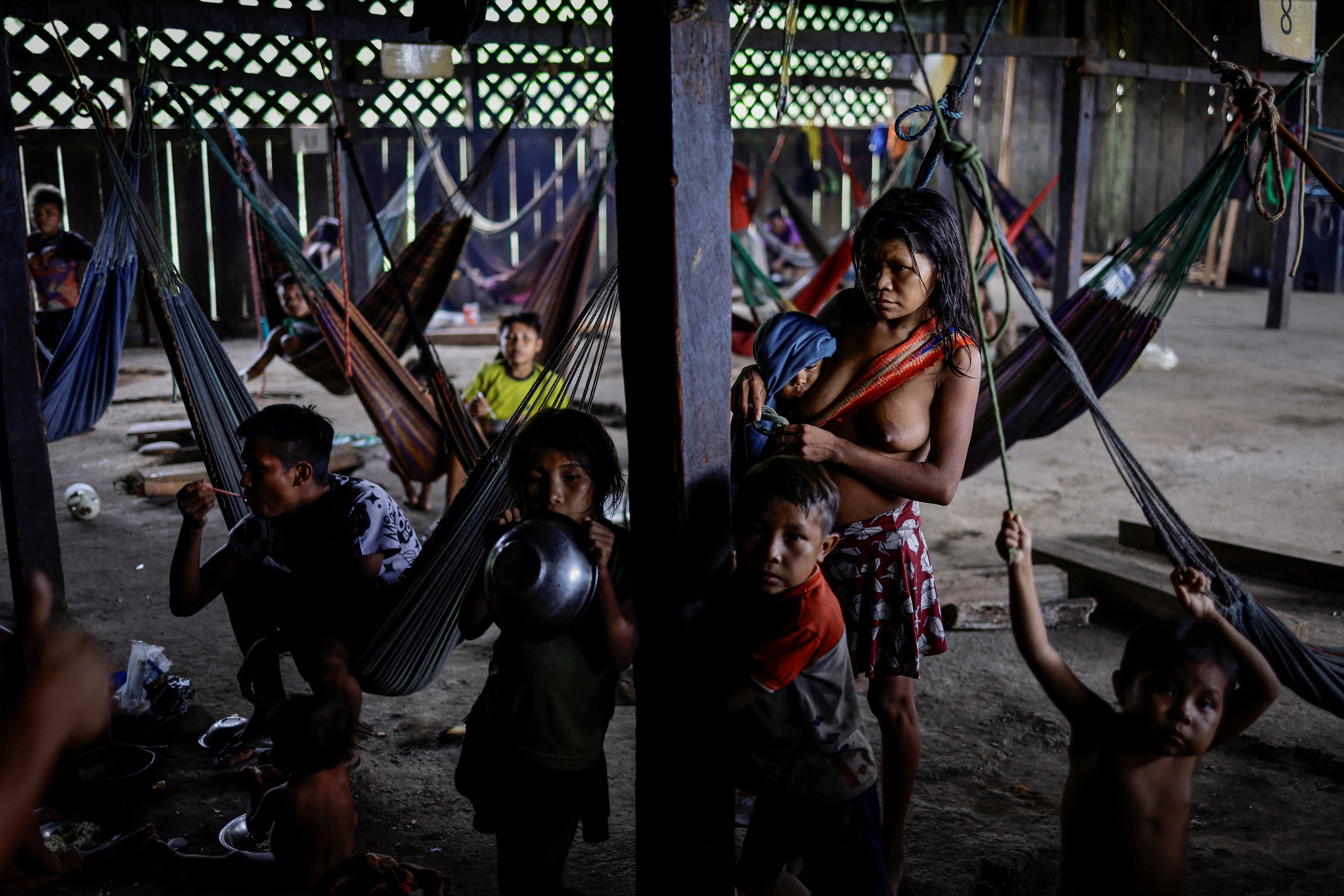

The air force has not enforced a no-fly zone, despite being ordered to do so by Lula in April, while the navy is not doing enough to blockade rivers that are the miners’ main access for machinery and supplies, three Ibama officials said.
Brazil’s army, navy and air force did not reply to requests for comment.
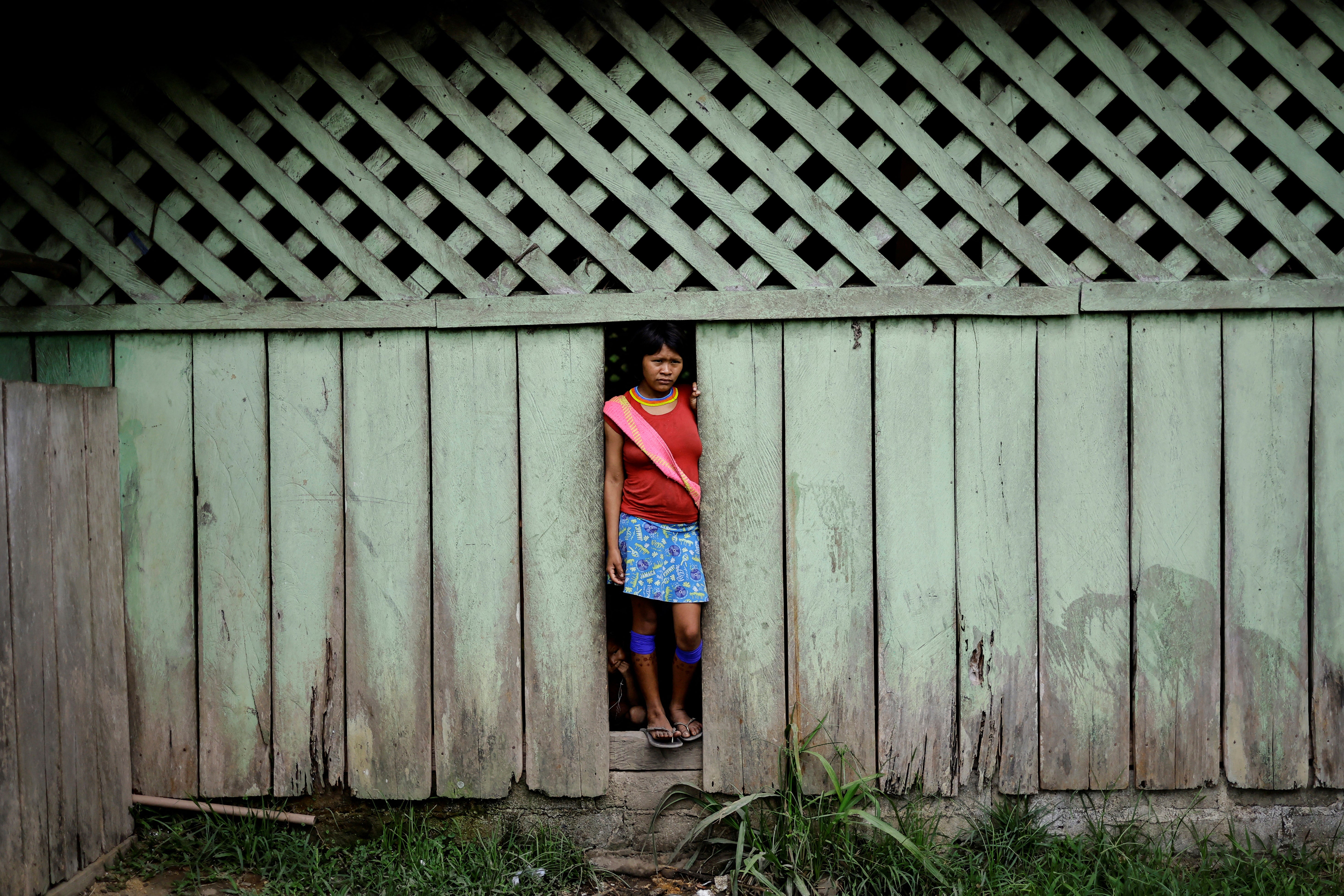
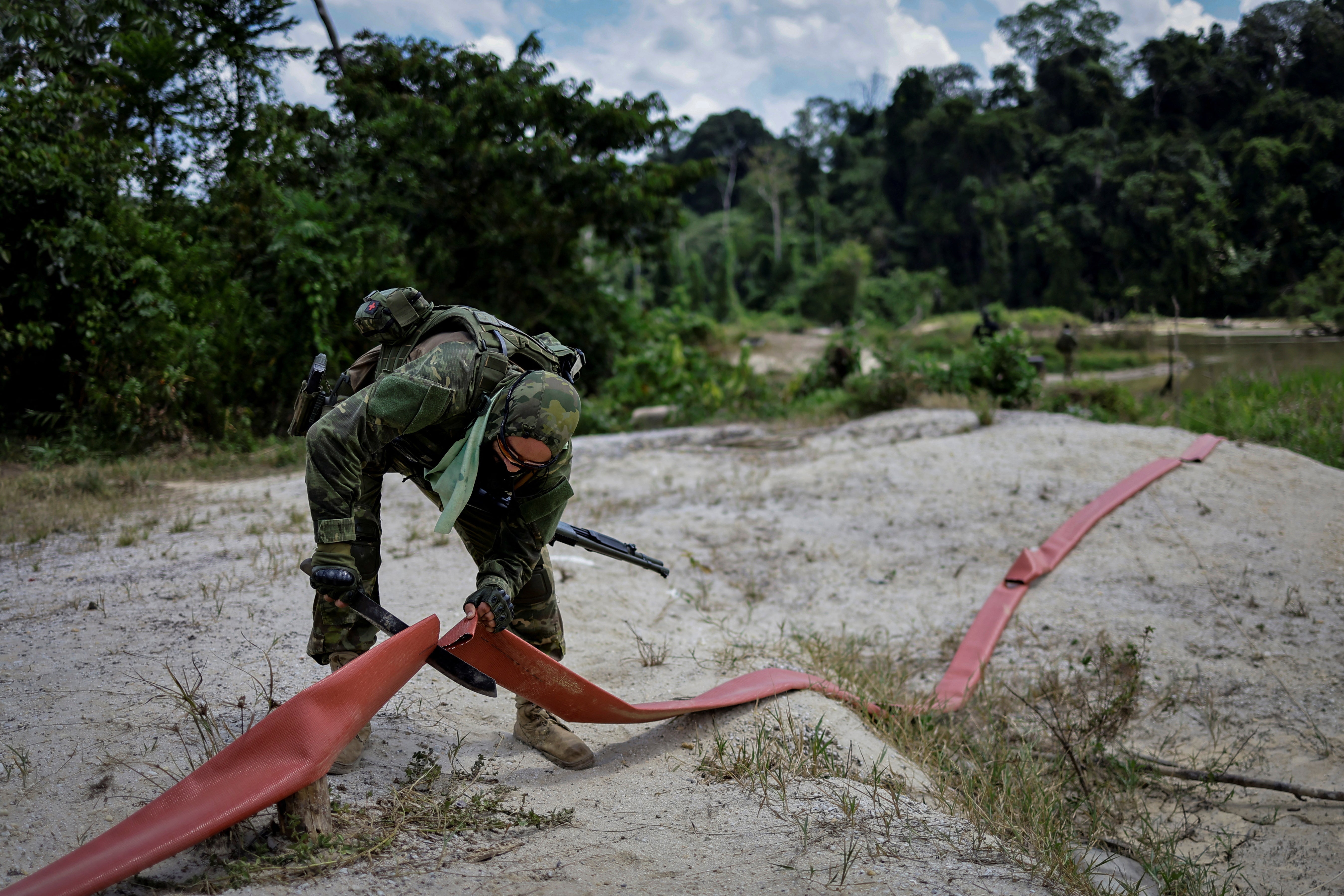
The ineffective no-fly zone has led to growing numbers of unregistered pilots flying miners into Yanomami land, and then crossing the border to safety in Venezuela when intercepted by Ibama helicopters, said Ibama pilot Carlos Alberto Hoffmann. Venezuela’s government did not reply to a request for comment.
“Most of the miners had gone, but they are coming back,” Yanomami shaman Davi Kopenawa, whose activism helped create the government-protected Yanomami territory in 1992, told Reuters. “Illegal mining is so bad for us.”
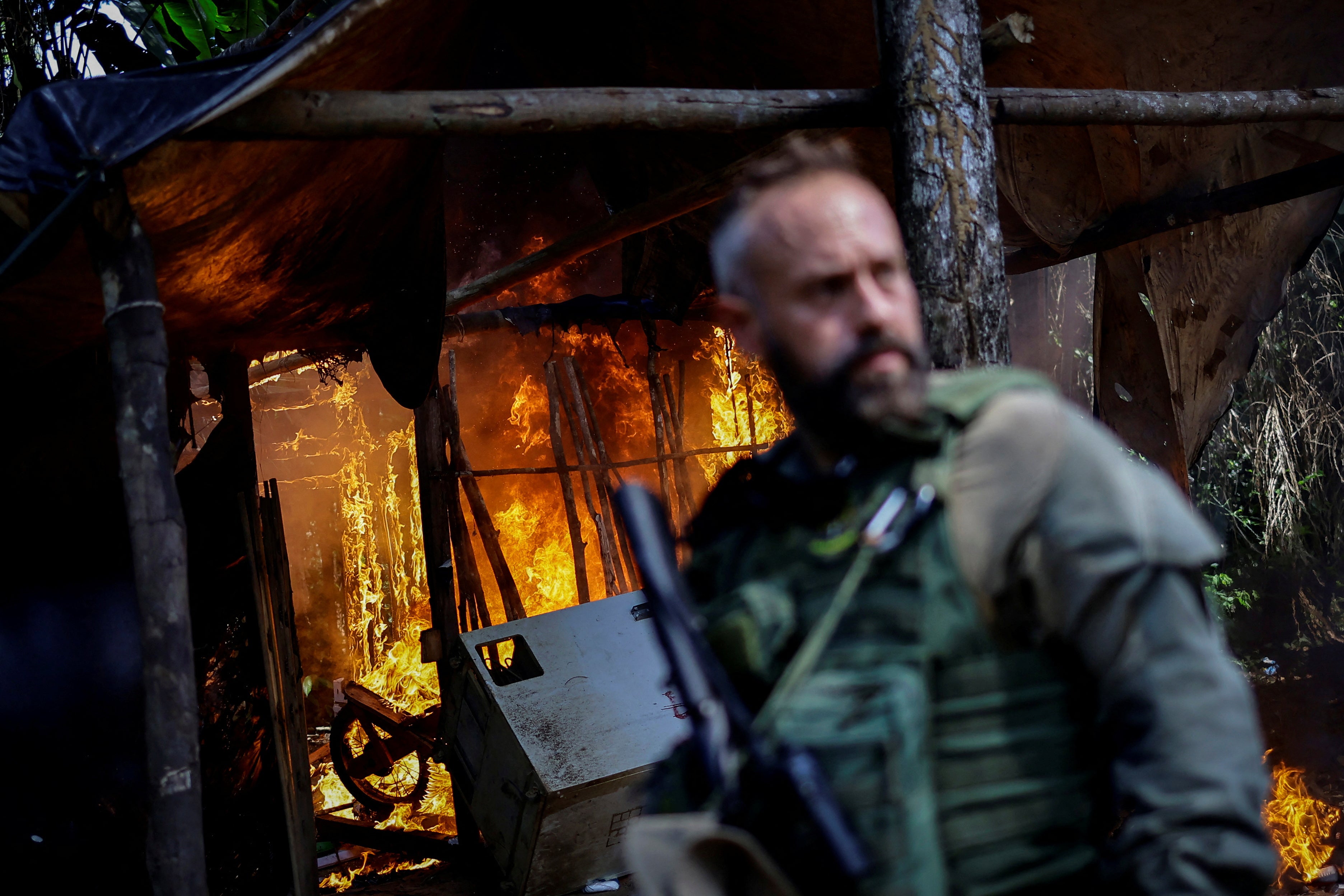
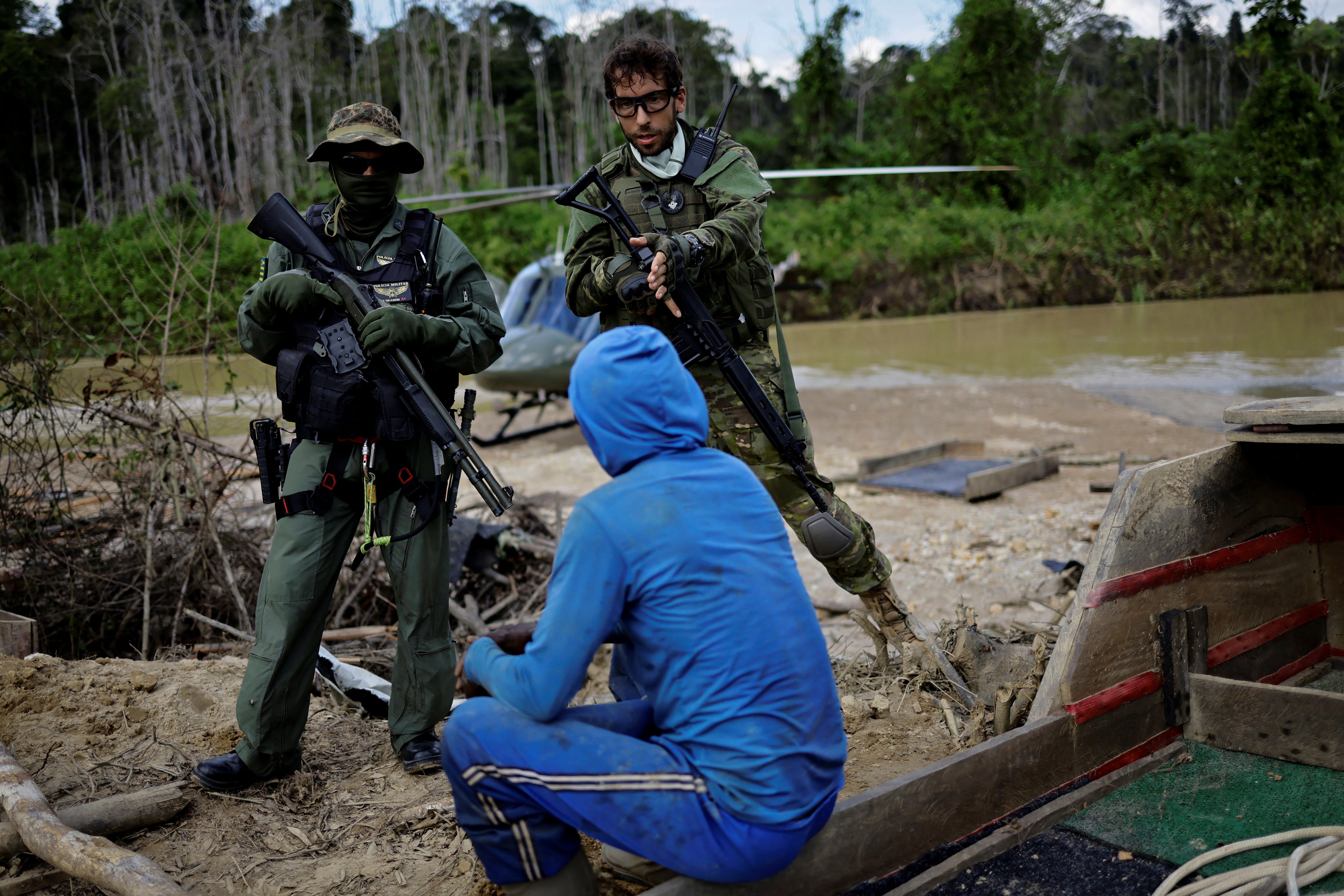
Along with poisoning rivers and spreading disease, the return of the gold miners boosts criminal groups that traffic drugs and timber across the Amazon, undermining Lula’s pledge to restore law and order there and end deforestation by 2030.
Miners arrested and handcuffed by Ibama special forces said they were poor and needed an income from gold prospecting to feed their families. Most were removed from the reservation and freed, and police said they are now seeking the backers who financed the gold digs.
According to the 2022 census, there are 30,000 people from the Yanomami and related Ye’kwana people on the reservation, including groups with little or no contact with outsiders.
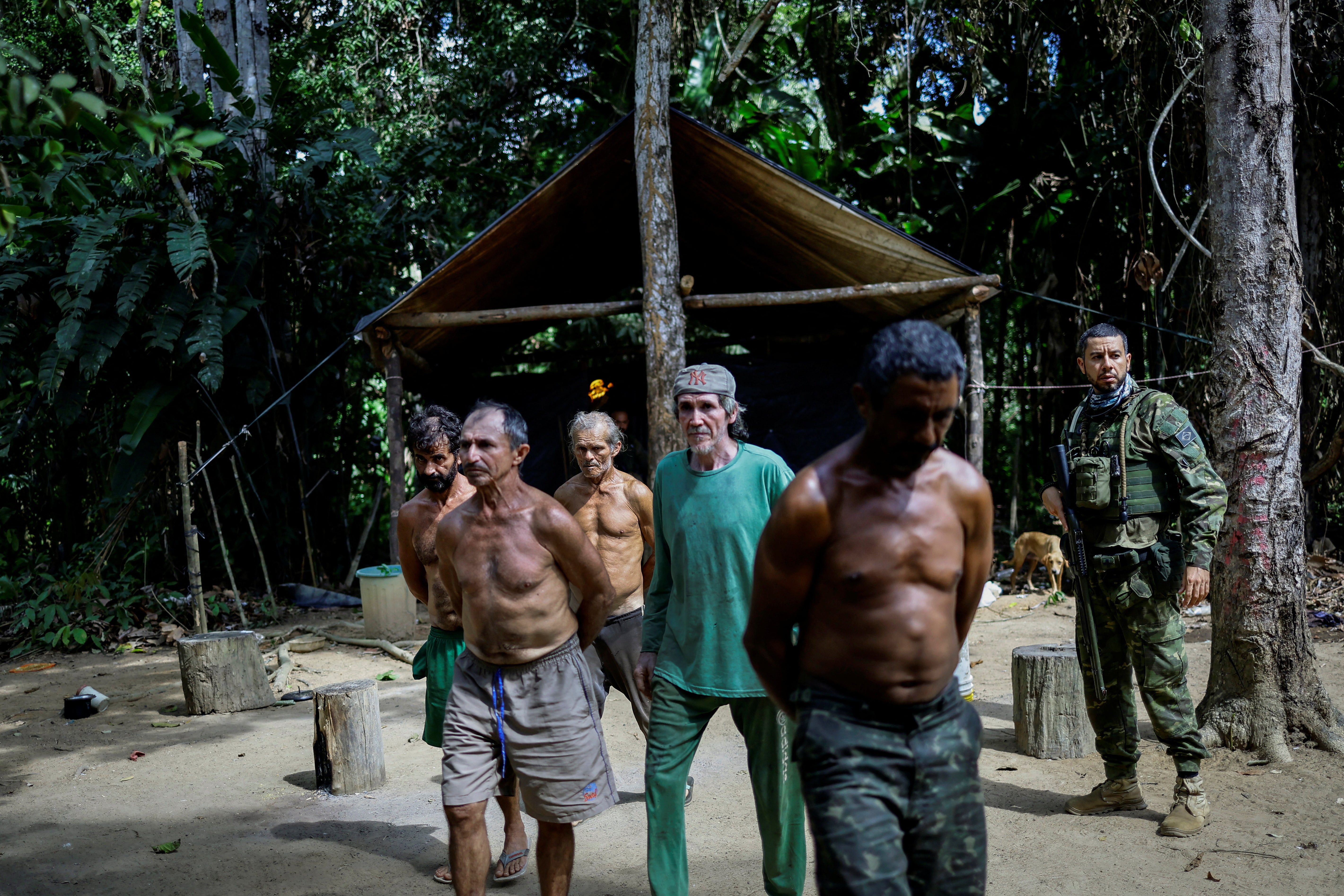

Earlier this month, Lula’s government pledged 1.2 billion reais (£191m) on security and assistance efforts for the Yanomami, and federal police director general Andrei Rodrigues said Brazil’s government must throw its full weight into defending the Indigenous people.
In addition, the federal police announced the start of a new operation against illegal mining in Yanomami territory and said in a statement they will have the support of the armed forces.
Reuters
Join our commenting forum
Join thought-provoking conversations, follow other Independent readers and see their replies
Comments